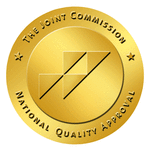
People cannot help but notice the difference in you as your self-confidence returns. Perhaps your pastor asked you to speak to a group of impressionable teenagers about the dangers of drug use or you were asked to lead your favorite AA group’s next meeting. All of these things are reasons to be proud of yourself.
Climbing back from the depths of addiction is no small feat. Celebrating each hard-won victory is to be expected; in fact, it is also encouraged. It is important for loved ones to see how seriously you take your sobriety. It helps others who struggle to maintain theirs to see that if they, too, put the hard work necessary into it that they can achieve the same successes. However, there’s a fine line between confidence and arrogance, and it is an easy one to cross over. People gravitate toward the former and can’t run fast enough from the latter.
Self Confidence or Arrogance: How to Know the Difference
Every accomplishment in life is worthy of celebration. Whether it is reaching another month of sobriety, reconciliation with one’s family, graduation from school, or a promotion on a job, we all have milestones to celebrate. Without them, life is full of drudgery. The arrogant person announces his victory, while the self-confident person humbly acknowledges the hard work needed to achieve it. Along with that acknowledgment, the self-confident person thanks those who helped her get there and does not insist she deserves anything but rather reminds us that all of us are capable of living a life that is sober.
The self-confident person identifies with those around him, regardless of the circumstances that brought them to recovery, the drugs they took, or their socioeconomic background; by contrast, the arrogant person works hard to repeatedly separate himself from those he deems different from himself.
Identifying it, Stopping it and Learning a New Way
Following rehab, if you decided to join a group that uses the twelve-step approach to sobriety, you will hear some common expressions in the rooms. Some of them might be: “it works if you work it,” “I am sober, just for today,” “one day at a time,” and “keep it simple, sweetie.” You will hear another every so often from members: so and so is “an ego maniac with an inferiority complex.” What that means is that oftentimes low self-esteem masquerades itself with a large ego. Whether you know it or not, the majority of people can see the difference, even if it eludes you.
Regardless of who we are or from what circumstances we came, at one point or another we all have bouts of low self-esteem. Being new to recovery, fear of relapse, concern about what others think, or being worried you will make a mistake at work, at home, or in a social situation can be paralyzing for anyone. This is all a part of the hard work that goes into staying sober that those with self-confidence acknowledge. Pretending these obstacles don’t exist can turn people off and can also be dangerous to your sobriety. Remembering that people will do their best to avoid arrogance, it is difficult to be successful at recovery if the people needed don’t want to be around you.
How to Turn a Scar into a Star
The wonderful thing about life is that no matter what, it is possible to redeem oneself. The same tools needed to climb your way out of addiction onto the path of recovery will be the ones needed to act with confidence and not with arrogance.
There is no need to strive for perfection. Nobody wants you to be perfect; they want you to be sober and happy. Impossible to reach perfection, there is only one way to go – down! Be humble, grateful, and honest. Many people misunderstand the meaning of humility. It doesn’t mean a low opinion of oneself but rather a modest opinion of oneself. To practice humility means to remove one’s ego from the equation. Once the ego is removed, gratitude automatically creeps in. When you downplay your own role, express gratitude for those who support you, and recognize the hard work needed, people will want to hear your message and gravitate toward you again.

 RSS Feed
RSS Feed
